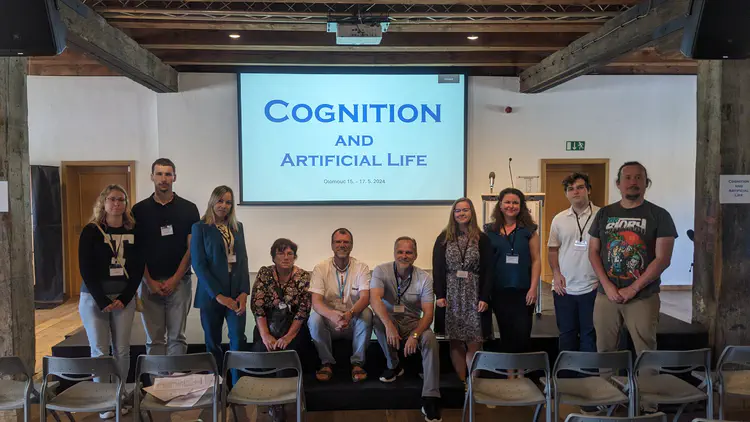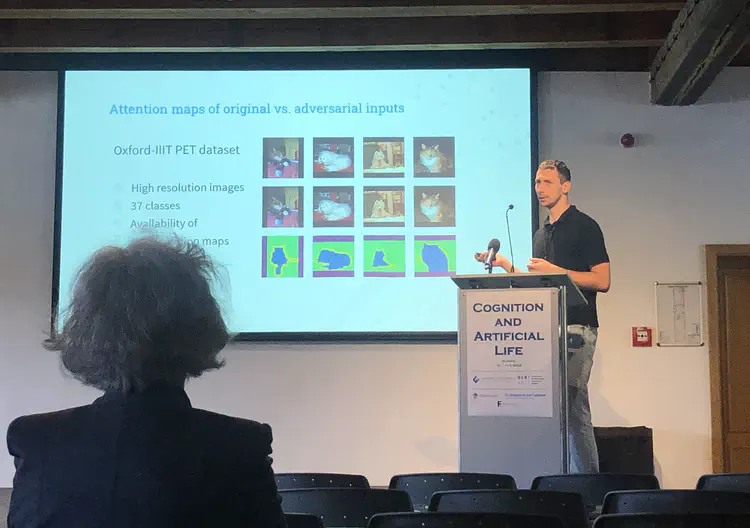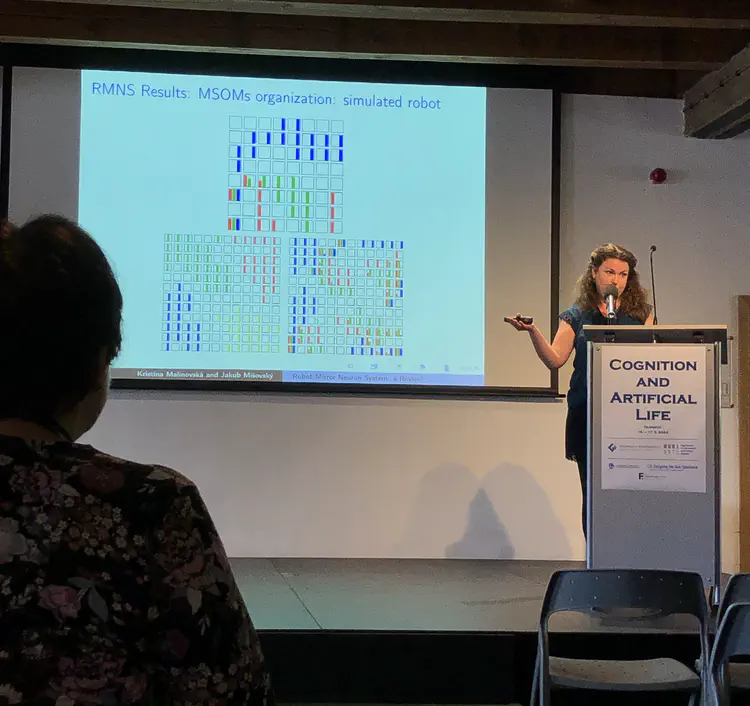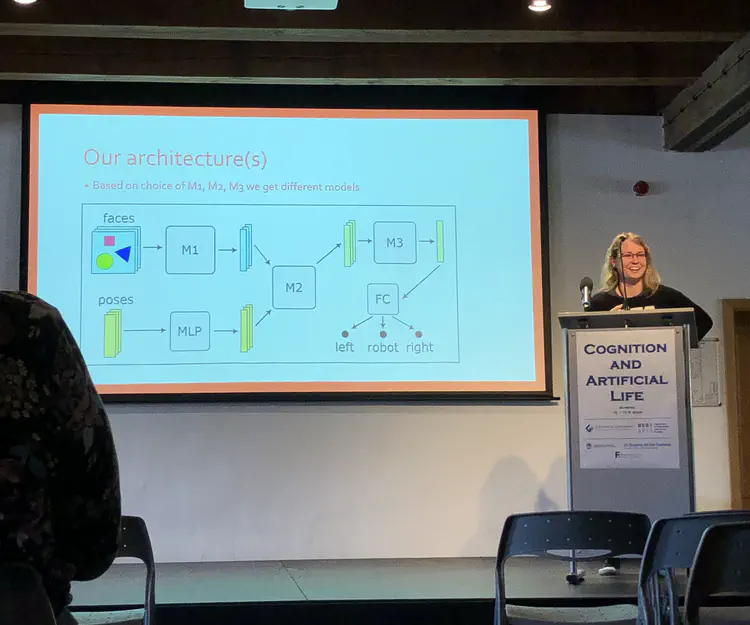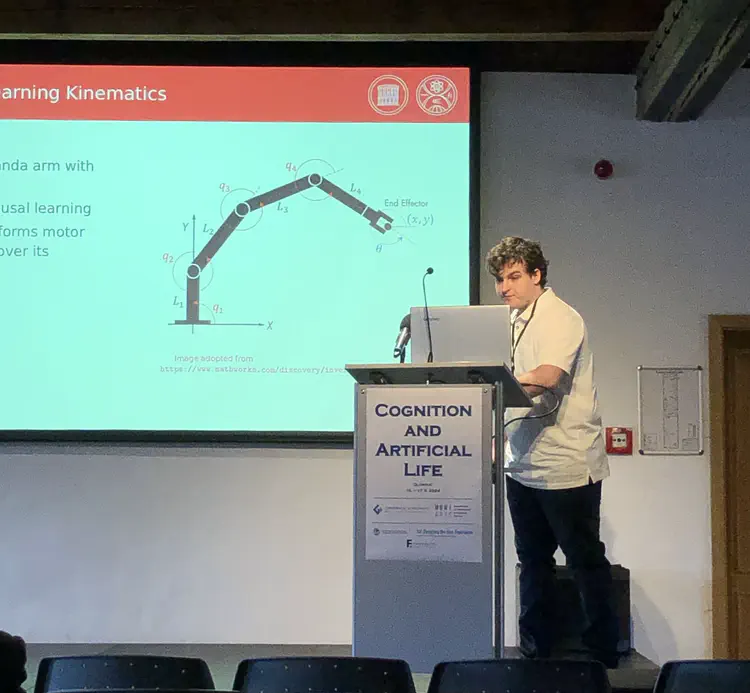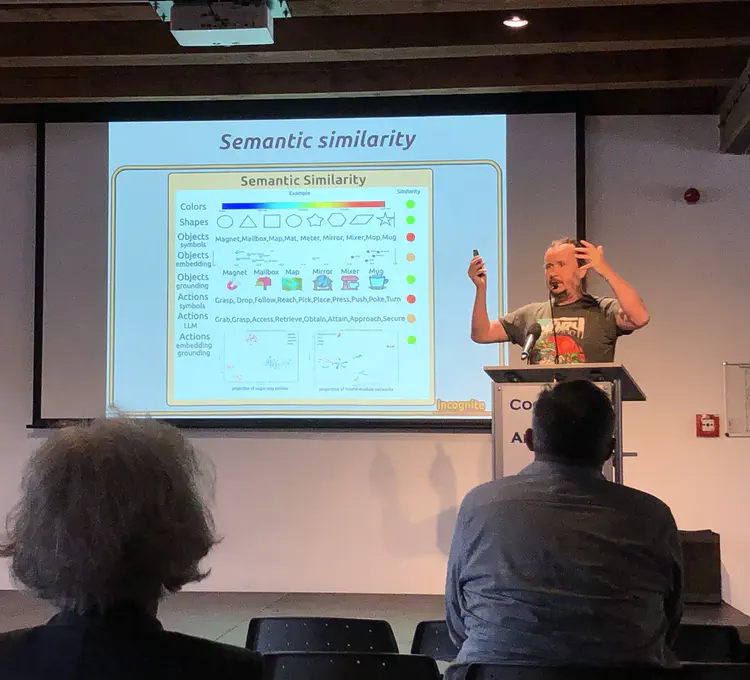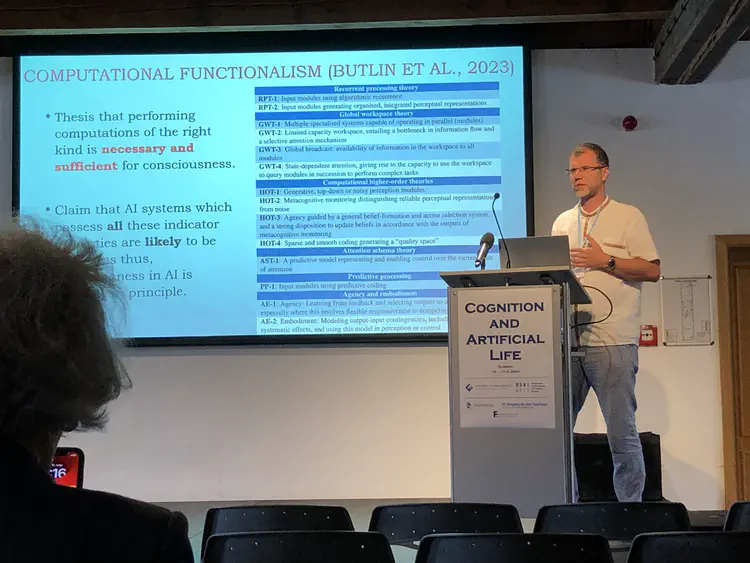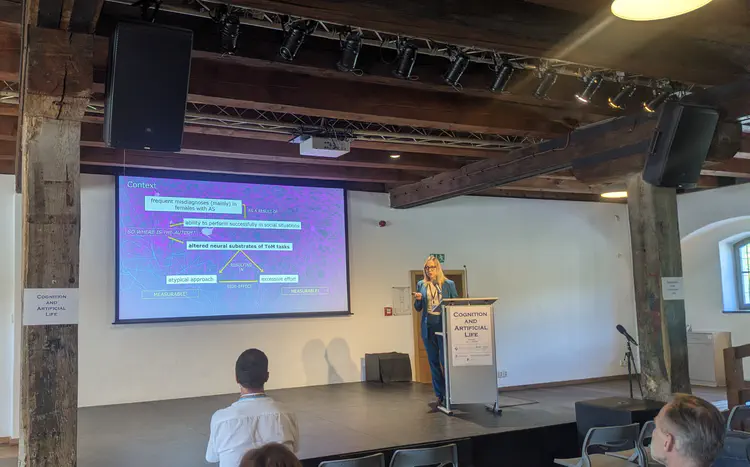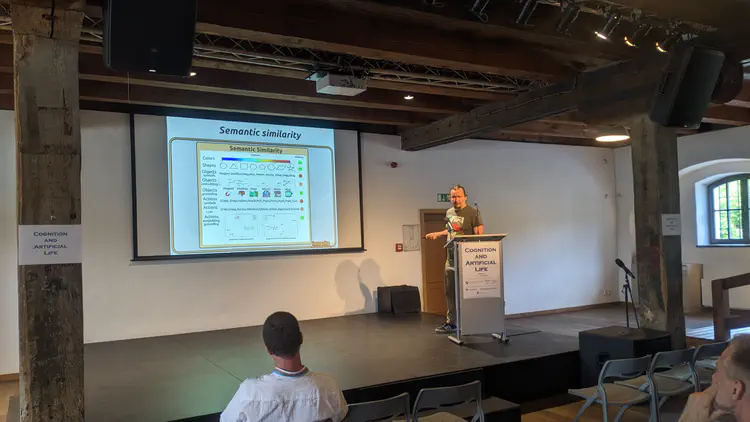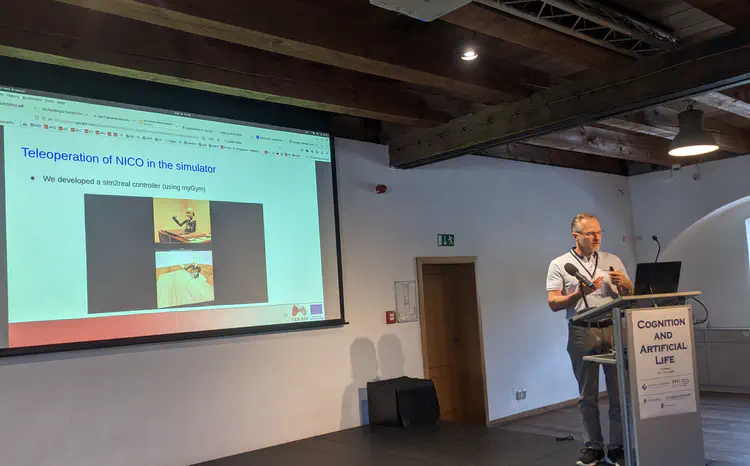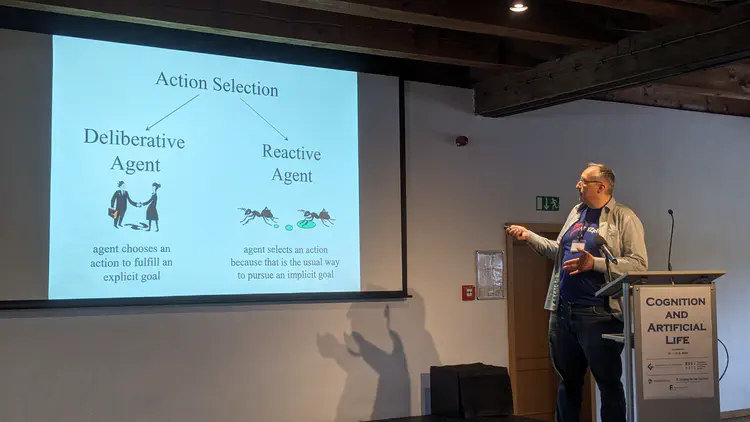TERAIS at Cognition and Artificial Life conference in Olomouc
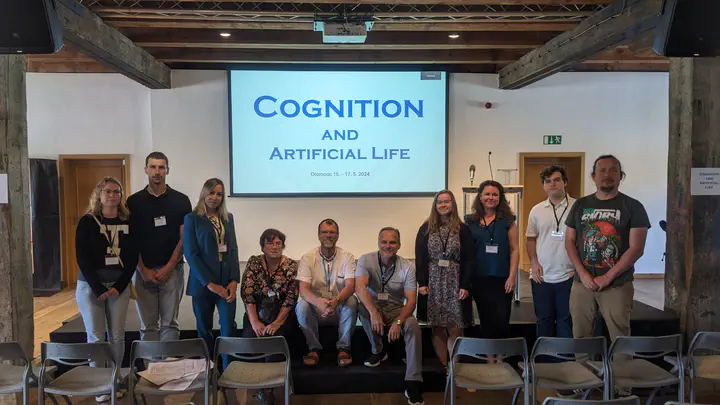
In mid-May, TERAIS team from DAI UKBA took an active part in the 22nd Conference on Cognition and Artificial Life at Fort Science in Olomouc. This international conference held alternately in Czechia and Slovakia provides a platform for presenting the latest research in various fields of cognition, encompassing both living and artificial systems.
Following TERAIS team members made a significant contributions to this intriguing event. With the long-term goal of achieving smooth and legible movements in humanoid robots, Igor Farkaš presented the pros and cons of various types of movement generation in his paper Approaches to generating arm movements in humanoid robot NICO, co-authored Andrej Lúčny and Michal Vavrečka.
Martin Takáč captivated the audience by comparing highly realistic video-trained generative AI models with a virtual infant simulator BabyX, in his presentation AI that looks, but does not see, co-authored with Alistair Knott and Mark Sagar from New Zealand.
Kristína Malinovská discussed her novel neural network model UBAL in the context of cognitive robotics, linked to her paper Biologically motivated neural network UBAL in cognitive robotics, co-authored with Jakub Mišovský. Kristína left the audience mesmerised by the emergence phenomena the model demonstrates.
A very compelling topic was outlined in a presentation Genius or a Brilliant Con Artist? by Andrej Lúčny and Peter Borovanský, who analysed mechanisms behind the success of artificial intelligence based on large language models, comparing it pertinently to a shrewd student who is eminently interested in getting the best possible grade on an exam but has no interest in actual knowledge.
Our new postdoctoral researcher Michal Vavrečka presented a work Semantic Similarity of Action Verbs focused on grounding of action verbs. The opportunity to present research was also given to young researchers, our doctoral candidates and other students who delivered interesting talks. Iveta Bečková spoke on human-robot interaction related topic Explainable Addressee Estimation, co-authored by her colleague Štefan Pócoš, while Štefan Pócoš presented a research paper also carried out together with Iveta Bečková and Igor Farkaš, titled Explainability of Vision Transformer with Top-Down Connection.
Among the students, Alexandra Dyalee presented her work on the invisible nature of Asperger syndrome, Theory of Mind: Varying Substrates of Social Cognition, proposing a novel method for its diagnosis in socially high-functioning individuals. Miroslav Cibula prepared a paper titled Low-level causality in a robotic sensorimotor behaviour, focused on a robotic arm learning casual relationships in a simulated environment by observing consequences of its actions. Miroslav’s paper was produced in collaboration with Igor Farkaš.
To sum up, on behalf of the TERAIS team, we extend our heartfelt gratitude to the conference organisers for giving us the opportunity to participate and contribute towards the innovative research and engaging presentations. We look forward to continued success and the exciting advancements the conference brings to the field of cognition and artificial life. For those interested in delving deeper into the presented work, the conference proceedings are available for further reading here.
